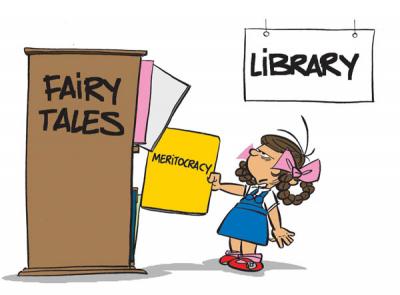Martin Luther King aptly pointed out that peace is not about the absence of conflicts but the presence of justice. And justice, it has often times been said, can only be seen and felt when there is development for all, development seen and understood as freedoms – freedom from illiteracy, from disease, from malnutrition, from homelessness, from violence, from sexual abuse, from hunger and exploitation. Such development can contribute to preventing discontent from manifesting itself in all shapes and forms. Around the world, people, particularly the young, are bringing their grievances to the public space. The specific grievances differ across countries yet the animating demands are the same: democracy, economic and social justice. The latter 3 constitute major sources of stability and the question of ethnic representation in parliament is of little relevance if at all.
BLS – a source of stability – myth or reality?
I was hoping that the resurgence of debates on electoral reforms will give us the opportunity to engage in some profound thinking about the deepening of our democracy but sadly a lot more focus has been placed on BLS per se. The associated question of funding of political parties, transparency, party registration and their internal functioning, the representation of women in politics, succession planning, term limit, the aberrant system which compels one to declare one’s ethnicity in order to be able to stand as a candidate, the fundamental human right to participate in the country’s political life etc have been largely ignored. The BLS has reigned supreme and has given rise to a lot of passion and emotion. Various people expressed their views in favour of its maintenance, some openly, some in a more disguised and subtle manner and others telling us that they want it for now and not in the long term.
Certain people are in a retrograde mode and seem to be disconnected with the reality of an increasingly hybrid Mauritian youth and their aspirations. The progressive segments of society wish to see the outright abolition of BLS and I am personally delighted that Reverend Ian Ernest and Monseigneur Piat are also of the same opinion. Those focused on the ideals of justice, meritocracy, competency, fairness etc are saying ‘let’s get rid of BLS’. Modern pluriethnic Mauritius should be given a chance to turn into a real nation, where one can develop a sense of belonging but so long that divisive factors such as the BLS exist, Mauritian-ness and nation building will remain a very difficult task.
Subsuming BLS is the wrong approach
BLS has often been decried as an institutionalised form of communalism. True, it may not be the only source of ‘communalism’ and that the latter is very complex and what goes on in the minds of people is difficult to interpret but such institutionalisation contributes to reinforcing certain ideas in peoples’ minds. If left unattended, unschakling it from peoples’ minds would become increasingly difficult in this age of growing uncertainty and insecurity. When some people tell you that BLS safeguards the right of minorities and brings stability, we wonder why we had the riots of 1999. We had BLS then too but did it prevent and/or stop the riots and has BLS put an end to the ‘malaise creole’ and to the growing polarization of Mauritian society?
Interpretations of the Carcassonne report are multiple and diverse. Some argue that Carcassonne has not recommended the abolition of the BLS while others rejoice at the idea that Carcassonne is in favour of the BLS’s abolition. Whether Carcassonne has recommended its abolition or not is of relative importance but what matters really is how do we wish to shape the future of our children? What sort of multiculturalism and social justice do we wish to experience? Telling us that we can reach the same objective of adequate ethnic representation but by a different mechanism and by showing us how BLS can be ‘subsumed’within an electoral reform project, does not assist in changing the mindset. The philosophical/ideological underpinnings of the electoral system remain fundamentally the same with such ‘subsuming.’ The designing and reforming of electoral systems is not an easy task and there is no doubt that we need to search for stability. But is the subsuming of BLS the guarantor of stability?
What fuels social unrest and instability?
Social stability rests largely on people knowing that their livelihoods are secure, that equal opportunities and justice exist, that their aspirations are met and that their children have a bright future. And for this to happen, we need a competent government, one that can deliver. We need a system which speaks to the interests of the people and not allowing the fat cats to get fatter. But what we are witnessing these days is increasing class exploitation, profit-driven ecological destruction, gross commercialisation of all spheres of human life including culture and social relations. The problem of street children is on the rise, the mismatch between the education/training system and the labour market persists, rising unemployment, the incoherence of different economic pundits – with on the one hand the Governor of the Bank of Mauritius telling us that the economy is doing fine whilst some other actors inform us of the economy emitting important signs of distress, the major losses, waste and inefficiencies prevailing in some sectors, the most prominent one being the case of our national carrier – Air Mauritius, crime and violence, corruption, growing inequalisation and poverty, persistent high rate of failures at CPE and juvenile delinquency, the water crisis constitute some major ingredients for instability. These have little to do with BLS if at all.
L’invitée du Forum: BLS, Social Stability and Peace
- Publicité -
EN CONTINU ↻
- Publicité -

